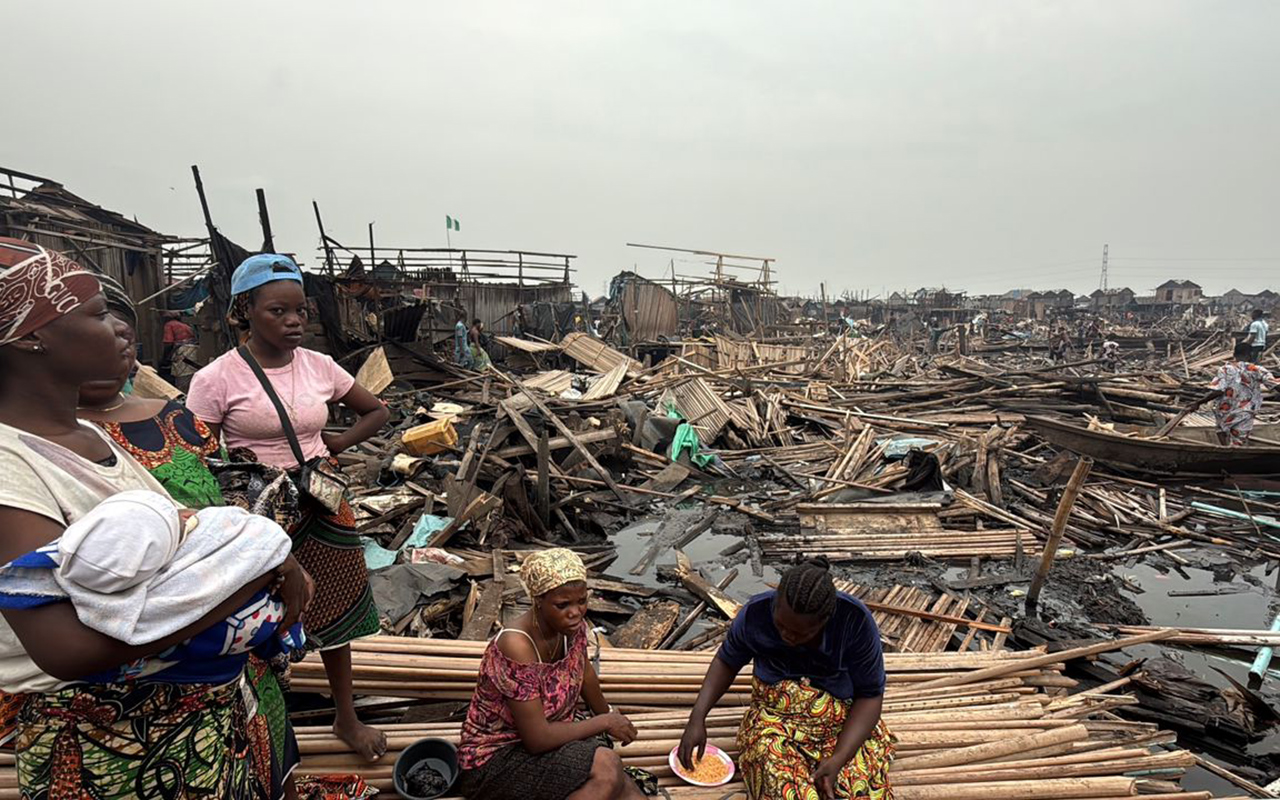
Worried that breast cancer is the commonest and deadliest form of cancer on the continent and only one in two women in sub-Saharan Africa is expected to survive for five years after receiving a diagnosis, a group of African women leaders have come together to form the Africa Breast Cancer Council, with the support of Roche, one of the world’s largest biotech companies.
The Africa Breast Cancer Council, in a press statement, yesterday, said it is a response to the growing burden of breast cancer on the African continent. The Council said it would leverage their extensive, diverse and complementary experience to guide and drive policy change in their home countries and across the continent. They will encourage increased collaboration, better data collection and improved patient outcomes. The Council’s work will seek to foster systemic improvements in healthcare infrastructure, access, and funding, driving sustainable, scalable impact for breast cancer care. The Council will focus initially on African healthcare systems which are open to partnership and innovation, then move to scale this work across the continent.
Africa Breast Cancer Council member, Union of International Cancer Control (UICC) President, and Chairperson of First Ladies Against Cancer Initiative, Dr. Zainab Shinkaffi-Bagidu, said: “As women’s health champions, we have come together to accelerate action on the leading cause of cancer-related deaths among African women. I talk to women all the time whose knowledge of risk factors and early symptoms is poor. On top of that is fear: fear of stigmatisation, along with women’s fear of being a financial burden, stop them from seeking treatment. As our work progresses, we will be highlighting critical gaps like these that Nigeria needs to close to speed up effective breast cancer diagnosis and treatment.”
Shinkafi-Bagudu, who is also a medical doctor, in a press statement, said it can take more than six months for women in Africa to receive a breast cancer diagnosis after noticing symptoms, due in part to healthcare system inefficiencies and limited access to specialised care. This, she said, contributes to 60-70 per cent of African women receiving a diagnosis in the late stage, reducing chances of survival and increasing cancer care costs with more expensive therapies and longer hospital stays.
According to her, this is exacerbated by a lack of awareness of the importance of breast self-checks, along with widespread stigma surrounding breast cancer treatment. In light of this need, Shinkafi-Bagudu said the Council will work at a national level to reduce the time to diagnosis from six months to 60 days.
She said the three-year survival rate for women diagnosed with breast cancer in Nigeria is estimated at 36 per cent, which is largely due to late diagnosis, linked to low awareness of the importance of breast self-examinations, the high cost of treatment, and the low number of health centers in rural areas. This is exacerbated by a lack of ring-fenced budgets for cancer care.
Africa Breast Cancer Council Co-chair and General Manager at Roche South Africa and Sub Region, Wendy Cupido, said: “Every woman on this Council has a day job that plays an important role in the fight against breast cancer. Our aim in coming together is to channel our knowledge, expertise, relationships and energy into a collective voice, and a collective force, to focus on significant areas of concern.”
Africa Breast Cancer Council member and President and Co-founder, Institute for Global Health and Development, Dr. Magda Robalo, said: “Most African women with breast cancer are diagnosed too late and, even after a diagnosis, many do not receive the treatment they need. This egregious injustice is utterly preventable. In response, the Africa Breast Cancer Council will work to shape policies and advocate for governments to urgently commit the resources needed.”
Other members of the Africa Breast Cancer Council include: Soraya Mellali, Former Executive Director, African Development Bank Group: Development strategist/economist with over 25 years’ experience at The World Bank, United Nations Development Programme (UNDP), Central Bank of Algeria. (Chair of the Council);
Dr. Carol Benn, Fellow, College of Surgeons of South Africa: Head of Breast Unit of Helen Joseph Hospital, Johannesburg, founding member of the Breast Health Foundation; Karen Nakawala Chilowa, Executive Director, Teal Sisters Foundation: Member of Taskforce for Cervical Cancer Elimination in the Commonwealth, cervical cancer survivor; Dr. Selma Gadria, Oncologist surgeon in private practice at Hannibal Medical Centre, Tunisia: Executive Officer, Association Nourane; Dr. Miriam Mutebi, Breast Cancer Surgical Oncologist: Vice-President, East Africa of the African Organization for Research and Training in Cancer, Chairperson for the Kenya Society of Hematology and Oncology, member of Board of Directors of the Union for International Cancer Control. The first female breast cancer surgeon in Kenya; Dorothy Nyong’o, First Lady of Kisumu County, Kenya: Managing Trustee of Africa Cancer Foundation, consultant for International Planned Parenthood Federation and Family Health Options Kenya; Dr. Verna Vanderpuye, Senior Consultant, Ghana National Center for Radiotherapy, Oncology and Nuclear Medicine: Recipient of the 2019 International Women Who Conquer Cancer Mentorship Award, Treasurer of the African Organization for Research and Treatment of Cancer.
The Africa Breast Cancer Council was formed by pioneering African women to tackle the growing burden of breast cancer across the continent. The members are leaders in their fields and include oncologists, surgeons, first ladies, advocates, a survivor, a former minister, and an economist.
The Council, formed in 2024, will leverage the extensive and diverse experience of its members to guide and drive policy change in high-impact countries in line with the WHO Global Breast Cancer Initiative Framework to improve early detection, diagnosis and treatment. The Council is supported by Roche, which was founded in 1896 in Basel, Switzerland, as one of the first industrial manufacturers of branded medicines.
African women establish breast cancer council to improve survival

[FILE PHOTO] Breast cancer
[FILE PHOTO] Breast cancer





